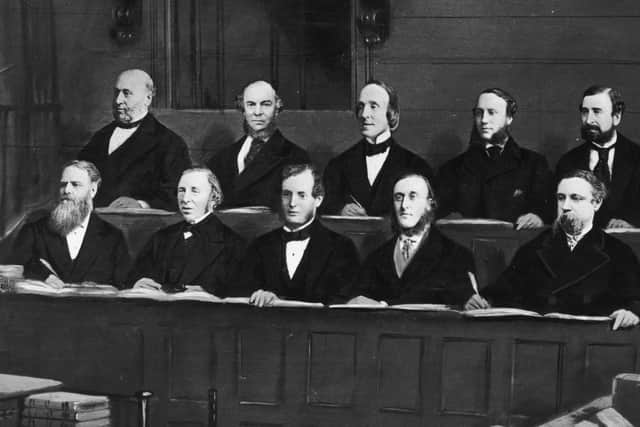Victims, Witnesses and Justice Reform (Scotland) Bill: We should modernise our 19th-century rape laws, not scrap jury trials, to improve low conviction rate – Tom Wood
I have cursed them from time to time but, in more than 50 years of observation, I have come to have considerable regard for the judgment of juries. It’s easy for professionals in and around the justice system to criticise but, viewed objectively, they usually get it right.
You underestimate juries at your peril, I have often seen a random selection of citizens, men and women, see clear through the most impenetrable legal flim-flam to reach a common sense verdict. Of course, juries are the exception in our courts today. The reality is that the vast percentage of criminal cases heard in our courts are under summary procedure and are tried without juries.
Advertisement
Hide AdAdvertisement
Hide AdBut for the more serious, solemn cases, like rape, a jury still sits to decide the guilt or innocence of its members’ peers. Trial by jury is one of the foundations of our justice system and it has been since time immemorial. But now, if the government gets its way, that’s about to change.
The new Victims, Witnesses and Justice Reform (Scotland) Bill will, among other things, legislate for the experimental removal of juries in cases of rape. It’s all about the low conviction rate for these most serious crimes, and “research” that suggests that “rape myths” might influence juries’ decisions, and that “false or prejudicial beliefs” may influence verdicts. We cannot be sure of the quality of the “research”, but it smacks of the now-familiar social media argument that ‘if you don’t agree with me, you are either stupid, bigoted, or both.
Apart from being gratuitously insulting to thousands of jurors who give up their time for the public good, this may well misdiagnose the problem of low rape convictions. Might it be that instead of being stupid or bigoted, juries are simply not convinced that the cases have been proved beyond all reasonable doubt?
Could it be that juries of common sense folk baulk at the stark choice presented by our 19th-century definition of rape in the face of 21st-century nuance? Why is it that other enlightened jurisdictions have modernised their rape laws to reflect 21st-century norms? Could it be that our refusal to modernise our law is the cause of our disastrous conviction rate? Might the dogmatic defence of our old definition of rape actually be denying justice to victims who desperately deserve it?
But there is also a more fundamental reason why we should be wary of weakening our jury system. The Scottish justice system does not belong to judges or lawyers, the police or the government. And it does not belong to prosecutors and certainly not to politicians.


Our justice system belongs to us – the public – and the Lord Advocate is a public servant who brings all prosecutions in our, the public’s, interest. Juries, made up of ordinary members of the public, are the most practical manifestation of that ownership and involvement.
In a time when there is a growing reluctance to be involved in public life, it seems particularly short-sighted to deliberately detach public involvement from the justice system which depends so much on their support.
Tom Wood is a writer and former police officer